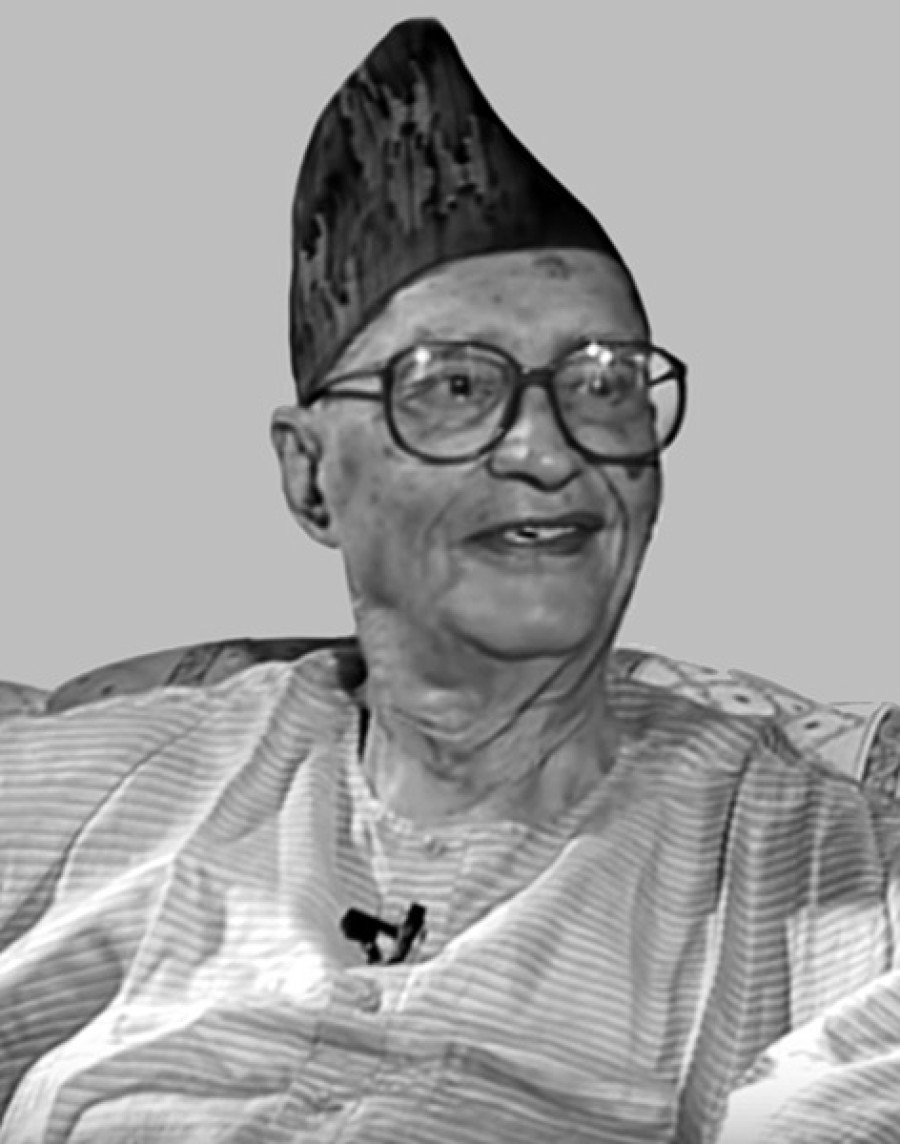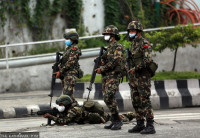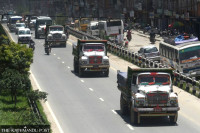National
Kirti Nidhi Bista, who strongly stood for sovereignty, dies at 90
Kirti Nidhi Bista, a three-time former prime minister during the monarchy, died on Saturday morning at his home in Gyaneshwor. He was 90.
Binod Ghimire
Kirti Nidhi Bista, a three-time former prime minister during the monarchy, died on Saturday morning at his home in Gyaneshwor. He was 90.
Bista, known for his simplicity, integrity and commitments on state sovereignty, was suffering from cancer for quite some time.
He served as the prime minister thrice with two generations of kings—twice with Mahendra and once with Birendra.
He remained out of active politics after the country adopted constitutional monarchy following the end of the 30-year-old Panchayati regime and restoration of multi-party democracy in 1990. He was, however, once again called back by the now deposed king Gyanendra after he assumed absolute power in 2005 to serve as one of the vice-chairmen of his Council of Ministers.
Many know Bista as a staunch royalist, something he never refuted. Yet he is known for holding his ground when it came to the issues he strongly believed in. Those who know him closely remember him as a man of conviction and someone who always maintained a strong position on sovereignty.
Bista was the first politician to say that the 1950 Nepal-India Treaty of Peace and Friendship “is irrelevant and needs to be reviewed”.
Born in January 1927, Bista was appointed foreign minister in 1965 before Mahendra asked him to head the government in 1969. During his first stint as the prime minister, Bista played an instrumental role, almost single-handedly, in sending Indian troops back from the army check posts that were set up along the Nepal-India border following New Delhi’s coercive foreign policy.
“We had a tough talk where I clearly said the check posts were a shame on a sovereign country. She was finally convinced,” Bista has written in his book “Nepal-India Relations: Past, Present and Future”, which was published last year.
During her visit to Nepal, then Indian prime minister Indira Gandhi had taken serious exception to the move by Nepal, which also led to souring of relations between Nepal and India.
Leo E Rose in his book “Nepal, Strategy for Survival” has quoted Bista as saying: “it is not possible for Nepal to compromise its sovereignty or accept what may be called limited sovereignty for India’s so-called security” which depicts the strong position Bista maintained when it came to issues of sovereignty and nationality.
Following strong reservations from New Delhi about Bista’s initiatives to send Indian troops back from Nepal, King Mahendra sacked him on April 13, 1970.
But a year later, Mahendra again entrusted him with heading the government in April 1971.
On July 9, 1973, a massive fire destroyed a large section of Singha Durbar and a week later, Bista on July 16, 1973 resigned on moral grounds.
“His dedication to the country and sovereignty is second to none in Nepal’s political history,” former foreign minister and former ambassador Bhekh Bahadur Thapa told the Post. “No politician has reached close to the moral standard Bista maintained throughout his life,” Thapa added, also referring to Bista’s decision to step down as the prime minister on moral grounds after the Singha Durbar fire.
Bista remained close to the Nepali monarchs almost throughout his active life.
King Birendra in 1977 had asked him to head the government which prepared the blueprint of the referendum when people were asked to choose between party-less Panchayati system or multi-party democracy. Bista, however, was not at the helm when it was held in 1980. The referendum, which is strongly believed to have been rigged, gave verdict in favour of the Panchayati regime that lasted another 10 years.
The royal family’s penchant for Bista, however, did not end there. Gyanendra succeeded in 2001 after Birendra and his family were killed in the royal massacre. When Gyanendra took over on February 1, 2005, he again turned to Bista and appointed him as one of the vice-chairmen of his Council of Ministers, along with Tulsi Giri.
But the second people’s movement forced Gyanendra to bow down in April 2006 and relinquish power. Two years later, the centuries-old monarchy was abolished.
Despite serving as the country’s prime minister three times, Bista always stayed away from state facilities and never sought privileges.
After his death on Saturday, Prime Minister Sher Bahadur Deuba tweeted: “I’m deeply saddened at the passing away of Kirti Nidhi Bista. He was an epitome of simplicity and integrity, and will always be remembered as a great soul. My heart goes out to his bereaved family.”
Bista’s final rites were performed at Pashupati Aryaghat on Saturday itself. There was no state funeral for Bista as per his wish.
Bista is survived by a son and three daughters.




 11.54°C Kathmandu
11.54°C Kathmandu















